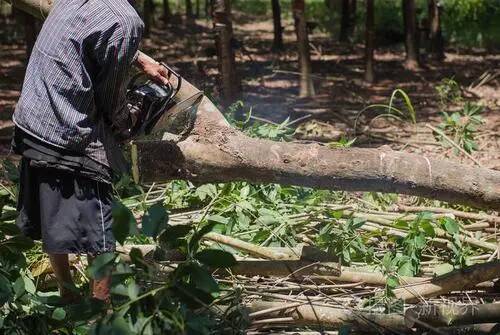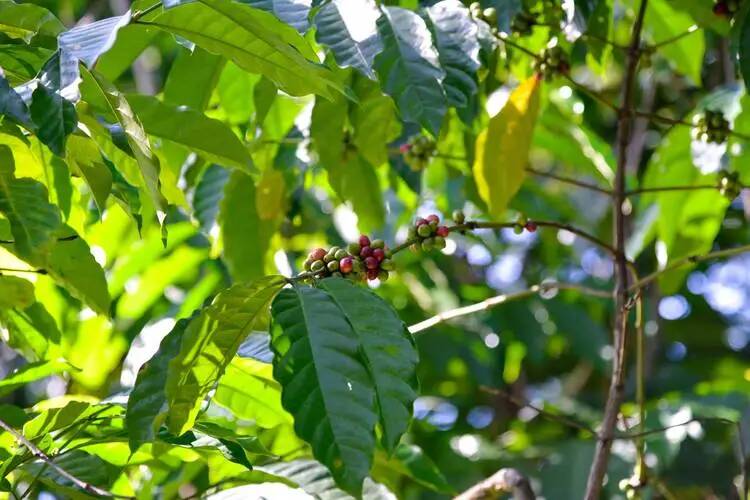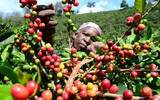EU forest regulations have a great impact on small coffee farmers and may aggravate non-compliant coffee supply and undermine market prices.
Recently, Andrew, a contract consultant and team leader of the agroforestry restoration project funded by the East Timorese government, said that the non-deforestation regulations issued by the European Union would affect East Timor's coffee exports and affect most small farmers.
The main cause of land use change and deforestation in agriculture is also the second largest greenhouse gas emission after burning fuel. In order to reduce the adverse impact of agriculture on climate, the EU has previously enacted no deforestation regulations (EUDR), which will be implemented in 2025, requiring seven agricultural commodities to be confirmed as "deforestation-free" before they are imported. It also includes coffee, which is said to account for 7% of deforestation promoted by the European Union.

Although the regulation is described as an important environmental milestone, it is not designed to take into account the complex smallholder agricultural supply chain, especially the coffee supply chain. In addition to some estates, coffee is grown by millions of small farmers, and the regulations of legislators may be incompatible with local production systems or beyond the capacity of vulnerable farmers to implement them. Some farmers who rely on coffee cultivation for production will face the biggest obstacles.
At present, many coffee-growing countries are affected, including East Timor. Coffee has always been one of the most important cash crops in East Timor. Coffee accounts for 90 per cent or more of the export value of non-oil commodities, is an important source of income for 77000 rural households, is the main source of income for 37 per cent of Timor-Leste, and the European Union is the largest market for coffee in East Timor. In 2022, the EU accounts for 33.5% of global coffee exports, including some decaf and other reasons. When intermediate countries transit, the EU will have more.

In Timor-Leste thousands of smallholder farmers produce coffee and each family usually grows less than one hectare of rural areas which may be distributed over multiple plots of land. In East Timor, land ownership is particularly complex. For decades, the rule of Portugal and Indonesia has created overlapping land tenure systems. As of 2016, more than 80% of rural areas have no legal right to live or cultivate land. The guidelines issued by the European Union prohibit goods from illegally occupied or disputed land. And in accordance with the requirements of EUDR, coffee must follow the GPS coordinates of its planting in the supply chain, separate plots must be selected, and the data must be retained for five years from the date of production. Therefore, the collection and management of geolocation data is unaffordable, and the power is unreliable and the illiteracy rate is high. Some farmers may also be reluctant to provide information for fear of tax increases or evictions from disputed land.
As a result, many coffee farmers in Timor-Leste are not very EUDR-compliant, and although coffee-consuming countries such as the United States, Australia and Japan can absorb East Timorese coffee, the microeconomic laws of supply and demand indicate that a decline in aggregate demand for any commodity can lead to lower sales levels. And other small farmers in Africa, South-East Asia and Latin America may be in a similar situation, which may exacerbate the damaging effects of some non-compliant supply, flooding global markets.
Important Notice :
前街咖啡 FrontStreet Coffee has moved to new addredd:
FrontStreet Coffee Address: 315,Donghua East Road,GuangZhou
Tel:020 38364473
- Prev

Introduction to coffee development, coffee varieties, SL28, rose summer varieties and Kilimanjaro coffee in Tanzania
Tanzania is located in eastern Africa, bordering Kenya, Uganda, Zambia, Rwanda, Burundi and other countries. The eastern coastal areas and inland lowlands of the country have a savanna climate, while the western inland plateau has a tropical mountain climate. In some coffee history, coffee was introduced into Tanzania from Ethiopia in the 16th century.
- Next

Coffee cool techs! Electronic nose for accurate identification of flavor
▲ click to follow | Daily boutique Coffee Culture Magazine Coffee Workshop some time ago influenza virus prevailed, many people were hit by coughing, stuffy nose, serious may not taste salty. Ordinary people may feel sick for a few days, take some medicine and have a good rest, and wait for their senses to recover slowly, but for migrant workers.
Related
- What grade does Jamaica Blue Mountain No. 1 coffee belong to and how to drink it better? What is the highest grade of Blue Mountain coffee for coffee aristocrats?
- What are the flavor characteristics of the world-famous coffee Blue Mountain No. 1 Golden Mantelin? What are the characteristics of deep-roasted bitter coffee?
- Can I make coffee a second time in an Italian hand-brewed mocha pot? Why can't coffee be brewed several times like tea leaves?
- Hand-brewed coffee flows with a knife and a tornado. How to brew it? What is the proportion of grinding water and water temperature divided into?
- What is the difference between Indonesian Sumatra Mantinin coffee and gold Mantinin? How to distinguish between real and fake golden Mantelin coffee?
- What does bypass mean in coffee? Why can hand-brewed coffee and water make it better?
- Unexpected! Ruixing Telunsu lattes use a smoothie machine to foam milk?!
- % Arabia's first store in Henan opens into the village?! Netizen: Thought it was P's
- Does an authentic standard mocha coffee recipe use chocolate sauce or powder? Mocha Latte/Dirty Coffee/Salty Mocha Coffee Recipe Share!
- What is the difference between Vietnam egg coffee and Norway egg coffee? Hand-brewed single product coffee filter paper filter cloth filter flat solution!

